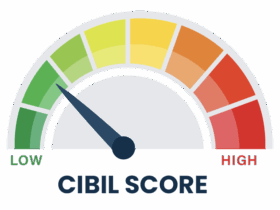The role of a Mortgage Investment Corporation (MIC) has become increasingly significant in the Canadian financial landscape. Understanding how to effectively evaluate a MIC in Canada is crucial for investors looking to maximize their returns in this sector. This article aims to provide key insights into assessing the performance of MICs, ensuring informed investment decisions.
Key Performance Indicators for MICs
When evaluating the performance of a MIC, several financial metrics and indicators should be considered. These include yield, payout ratio, and default rate. The yield on a MIC is often a primary consideration, reflecting the return on investment generated from the mortgage portfolio. The payout ratio indicates how much of the MIC’s earnings are distributed to investors, a critical factor for income-focused investors. Additionally, analyzing the default rate provides insight into the credit risk associated with the MIC’s mortgage holdings.
Portfolio Diversification
Diversification within a MIC’s portfolio can significantly impact its performance and risk profile. A well-diversified Mortgage Investment Corporation will spread its investments across various property types and geographic locations, reducing exposure to market-specific downturns. Evaluating the diversification strategy of a MIC can help investors understand the potential volatility and stability of their returns. A diverse portfolio often signals a more resilient investment vehicle capable of weathering economic fluctuations.
Management Expertise
The expertise and experience of a MIC’s management team play a pivotal role in its success. Effective management is essential for navigating the complexities of the mortgage market and making strategic decisions that enhance the MIC’s performance. Investors should consider the track record of the management team and their ability to adapt to market changes. A proficient management team can significantly influence a MIC’s ability to generate consistent returns.
Economic and Market Conditions
The broader economic environment and market conditions can greatly affect MIC’s performance. Factors such as interest rates, inflation, and real estate market trends will impact the returns and risk levels of MICs. Staying informed about emerging trends in the mic market can provide investors with valuable insights into the potential challenges and opportunities within this investment space.
Risk Management Practices
Risk management strategies are crucial for the sustainability and success of MICs. Investors should assess how a MIC approaches risk, including their underwriting standards and policies for managing default risks. A MIC with robust risk management practices is better equipped to handle economic uncertainties and protect investor capital.
Conclusion
Evaluating the performance of a Mortgage Investment Corporation involves a comprehensive analysis of key indicators, portfolio diversification, management expertise, and economic conditions. By understanding these factors, investors can make informed decisions and select MICs that align with their financial goals. A well-chosen MIC can offer competitive returns while mitigating risks in today’s dynamic market.
Frequently Asked Questions
1. What is the significance of yield in evaluating a MIC?
Yield is crucial as it represents the return on investment for a MIC. It helps investors assess how much income they can expect from their investment compared to other opportunities.
2. How does diversification affect a MIC’s performance?
Diversification reduces risk by spreading investments across different property types and locations, which can lead to more stable returns and lower volatility.
3. Why is management expertise important in a MIC?
Management expertise ensures that the MIC can navigate market complexities effectively, make strategic decisions, and adapt to economic changes, all of which contribute to consistent performance and investor confidence.







